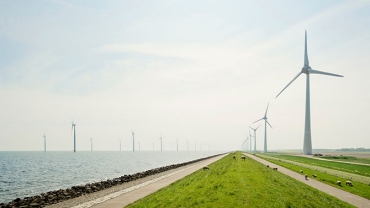
ADAPT provides grip in a complex world
The world is continuously changing. Megatrends such as climate change, the potential of technology, demographic developments and economic and political power shifts continue to re-shape our world. Governments, organisations and citizens are struggling with how to respond. We have developed the ADAPT framework to help them with this. ADAPT summarises urgent, global issues to which governments, companies, organisations and individuals must find an answer in the coming years. COVID-19 has accelerated these trends and made them more visible.
The world is complex: it is hard to get a grip on developments and on their consequences. ADAPT offers guidance: it is a framework to understand and analyse the world in order to be able to take the right actions for the future.

The main consequences of any ADAPT development:
Wealth disparity increases while the middle classes erode.
This leads to:
- growing disparities in opportunity and reduced social mobility;
- a larger risk of regional disadvantages;
- a decline in traditional sources of money (for example savings, pensions);
- an even greater disparity between people and countries due to differing technological capabilities.
Technology and climate change are disrupting the way we live and operate as individuals, organisations and as society.
This leads to:
- the need for continuous adaptation of (new) business models;
- organisations face increasing resource shortages, asset impairments and supply chain threats;
- institutions struggle to adapt and run the risk of no longer being relevant to citizens;
- work transforming while ‘traditional jobs’ disappear;
- continuous change in the relationship between people and technology;
- technological capital determines success or failure.
Demographic pressures on businesses, institutions and economies is increasing.
This leads to:
- significant shifts in consumer needs and consumption patterns;
- critical workforce shortages in some professions;
- unequal opportunities between countries, but also between people along the lines of access to work and/or capital;
- problems with the financing of pension schemes in ‘old economies’ which may mean that some people cannot afford to retire;
- challenges for ‘young economies’ to create jobs for young people at a large scale.
Global consensus is breaking down while nationalism and populism are growing.
This leads to:
- people’s local concerns become more acute and crowd out other issues;
- increasing societal polarisation;
- competition among nations for the best and the brightest;
- political decisions that are increasingly focused on the local and regional perspective.
Confidence in the institutions that underpin society is declining.
This leads to:
- lower levels of trust in institutions and less public support for regulation;
- increased concerns about personal and digital security;
- more distrust for other people, that do not belong to the ‘own group’.
- harder to make meaningful changes due to rising skepticism;
- increasing debate over what is true versus false.
Download the ADAPT brochure
Contact us














